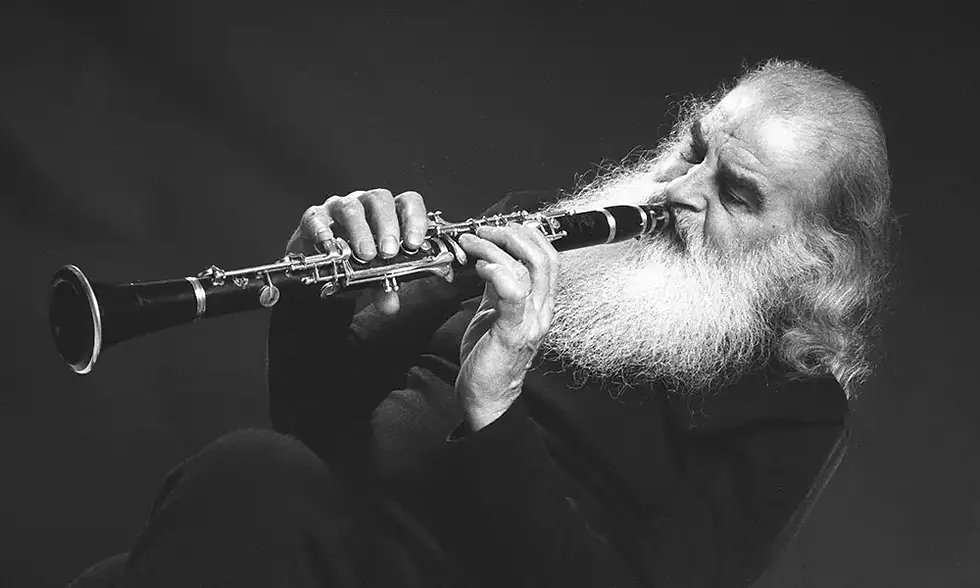Tony Scott-Zen Clarinet Master
- markos38
- Feb 10, 2023
- 4 min read
Updated: Apr 17, 2023

Tony Scott will always be one of my favorite clarinetists. Tony attended the Julliard School from 1940 to 1942, which puts him squarely in the World War Two era of swing clarinetists that includes Benny Goodman and Artie Shaw. While he never fully embraced the bebop movement the way that Buddy DeFranco did, Tony is well known for his explorations of world music, particularly his interest in Japanese music.
Tony's complete Wikipedia entry can be found here:https://en.wikipedia.org/wiki/Tony_Scott_(musician)

Early Tony Scott recordings showcase his mastery of standards and the American Songbook. Two recordings from this period stand out. Both Sides Of Tony Scott (1956) and The Complete Tony Scott feature such chestnuts as Stardust, My Funny Valentine and I’ll Remember April. All his recordings are worth investigating, every last one has some something interesting to offer the jazz clarinet enthusiast.

Tony Scott was playing clubs in New York City in the 1950’s, often encouraging young musicians to sit in with him. One such young musician was my friend and mentor, Perry Robinson. Perry told me as a young up and coming jazz clarinetist he often sought out and played with Tony. Perry was very fond of Tony and knew all of Tony’s recordings and could play many of his cliched licks. Tony and Jimmy Giuffre, along with Benny Goodman, were Perry’s biggest influences.

In 1959 Tony put together a group that might sound familiar to knowledgeable jazz fans. This was the first meeting of these fine musicians. The group included Bill Evans on piano, Scott LaFaro on bass, and Paul Motian on drums. Yes, that’s right, before these players were famous as the Bill Evans Trio they were part of Tony Scott’s group, and they produced arguably the greatest clarinet centric recording of all time, Sung Heroes. Of particular interest to me on Sung Heroes is the tune Lament To Manolete, where Tony tears apart a melody in Spanish Flamenco style with a stunning Flameno guitar accompaniment. This is the stuff of greatness, perfect in execution and style, simply original and unmatched by any other clarinetist in history. Sung Hereos is the most mind bending clarinet recording imaginable. The variety of styles that appear on the record, along with the depth and mastery of all the players, make this a once in a lifetime combination.
Lament To Manolete
Tony’s friendship with and admiration for Billie Holiday resulted in some of the most iconic music of both their careers. Very much toward the end of Bille’s life she recorded with Tony’s big band, for which Tony wrote all the arrangements. Billie Holiday with Tony Scott And His Orchestra is an incredible document of classic jazz.

Tony’s swirling clarinet counterpoint to Billie’s vocals makes an amazing combination that was never matched or duplicated in the history of the music. Her tune Lady Sings The Blues is the perfect example of this marriage. Tony enters at 1:47 and plays behind Bille’s vocals, two unmistakeable voices creating a a jazz masterpiece. You can find it here:
Lady Sings The Blues on Youtube here…..https://www.youtube.com/watch?v=CzgG8jtymCU
Here is Tony’s tune Misery from Sung Hereos, composed when Tony learned that Billie Holiday had passed away. I have recorded this tune myself, and it carries a poignancy that is unmistakeable. The piano is obviously a young Bill Evans, the touch and voicings are a dead giveaway.
Misery on Youtube: https://www.youtube.com/watch?v=lovwRVtLzDk

In 1964 Tony outdid himself again with Music For Zen Meditation on Verve records. The first recording of “New Age” music, this is a must hear to believe clarinet recording. Tony manages to weave his clarinet around the shakuhachi and at times you cannot tell the clarinet apart from the end blown shakuhachi flute. Tony had effortlessly and totally absorbed the Japanese music tradition and this recording is legendary and timeless.

Here is a link to further reading about Tony inventing New Age Music…https://www.udiscovermusic.com/stories/tony-scott-new-age-clarinet-jazz-zen-meditation/

A particular Tony Scott solo that stands out to me is his solo on Mean To Me, from a recording called Tony Scott And The Three Dicks, featuring Dick Katz, Dick Garcia and Dick Hyman. This solo jumps out at me because the general tone and atmosphere that Tony creates here to me is a precursor of the style that Perry Robinson developed a decade or so later. I can clearly hear how Perry was drawn to this subtle way of playing, and the gentle phrasing and tone very much remind me of the way that Perry was able to play when he wanted to. Perry certainly knew this recording and I think it very much influenced him, consciously or not.
Tony Scott spent the later part of his life in Europe, and made many recordings that are worth investigating. His style and playing became more esoteric as he got older, but the feeling and emotion in his sound and phrasing remained to the end. If you want to understand what I call middle period jazz clarinet style, between the swing era style exemplified by Benny Goodman and Artie Shaw, and the precursor to Buddy DeFranco and Eddie Daniels, then Tony is the pivot point to examine and study.
Finally the Tony Scott obituary from the New York Times can be found here:
Thanks for stopping by my Blog….Markos

Comments